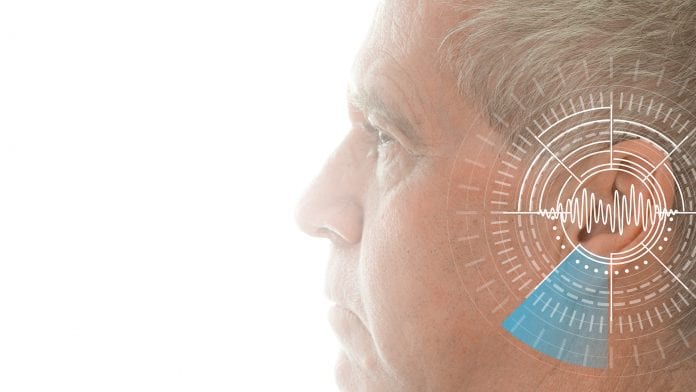
The greater the hearing loss, the greater the risk of having symptoms of depression, therefore hearing loss treatment could head off late-life depression, according to researchers.
Published in JAMA Otolaryngology-Head & Neck Surgery, a new study found that elderly individuals with age-related hearing loss experienced more symptoms of depression; therefore, suggesting the greater the hearing loss, the greater the risk of having depressive symptoms. The findings suggest that age-related hearing loss treatment, which is unrecognised and under-treated among all elderly, could be one way to hinder late-life depression.
Hearing loss treatment
Age-related hearing loss is the third-most common chronic condition in older adults.
Lead author Justin S. Golub, MD, MS, assistant professor of otolaryngology-head & neck surgery at Columbia University Vagelos College of Physicians and Surgeons, USA, explains: “Most people over age 70 have at least mild hearing loss, yet relatively few are diagnosed, much less treated, for this condition.”
“Hearing loss is easy to diagnose and treat, and treatment may be even more important if it can help ease or prevent depression.”
The condition is known to raise the risk of other conditions, such as cognitive impairment and dementia.
Details of the study
Each participant had an audiometric hearing test, an objective way to assess hearing loss, and was screened for depression.
The researchers found that individuals with mild hearing loss were almost twice as likely to have clinically significant symptoms of depression than those with normal hearing.
Individuals with severe hearing loss had over four times the odds of having depressive symptoms.
The study looked for an association at a single point in time, so it can’t prove that hearing loss causes depressive symptoms.
“That would have to be demonstrated in a prospective, randomised trial,” says Golub. “But it’s understandable how hearing loss could contribute to depressive symptoms. People with hearing loss have trouble communicating and tend to become more socially isolated, and social isolation can lead to depression.”
According to the researchers, although the research sample size only consisted of 5,239 individuals, the results could be applied to anyone with age-related hearing loss.






















